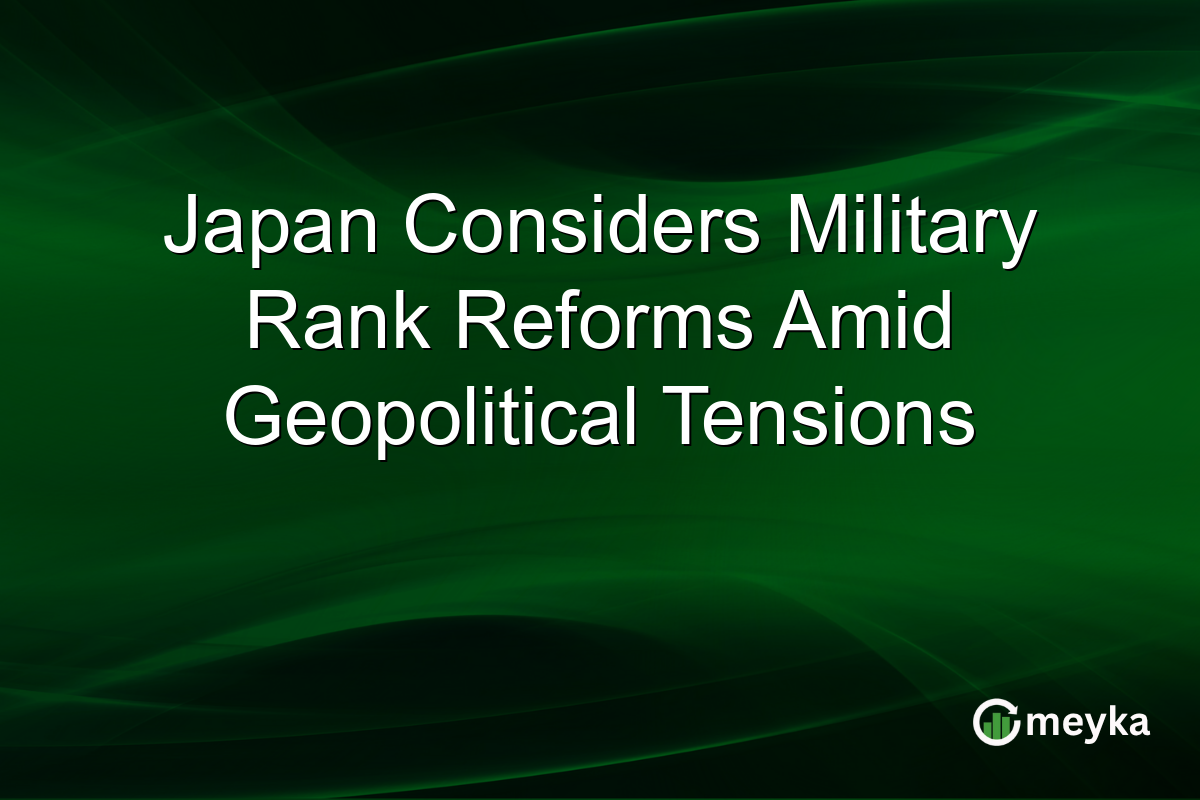Japan Considers Military Rank Reforms Amid Geopolitical Tensions
Japan is navigating a delicate balance amid rising geopolitical tensions in the Asia-Pacific region. The Japanese government is reportedly considering reforms to its Self-Defense Force ranking system. These changes could enhance operational capabilities and address persistent security threats. The focus on restructuring Japanese military ranks shows an adaptive response to evolving regional dynamics. This move has sparked significant discourse about its broader implications.
Continue Reading on Meyka
This article is available in full on our main platform. Get access to complete analysis, stock insights, and more.
Read Full Article →





